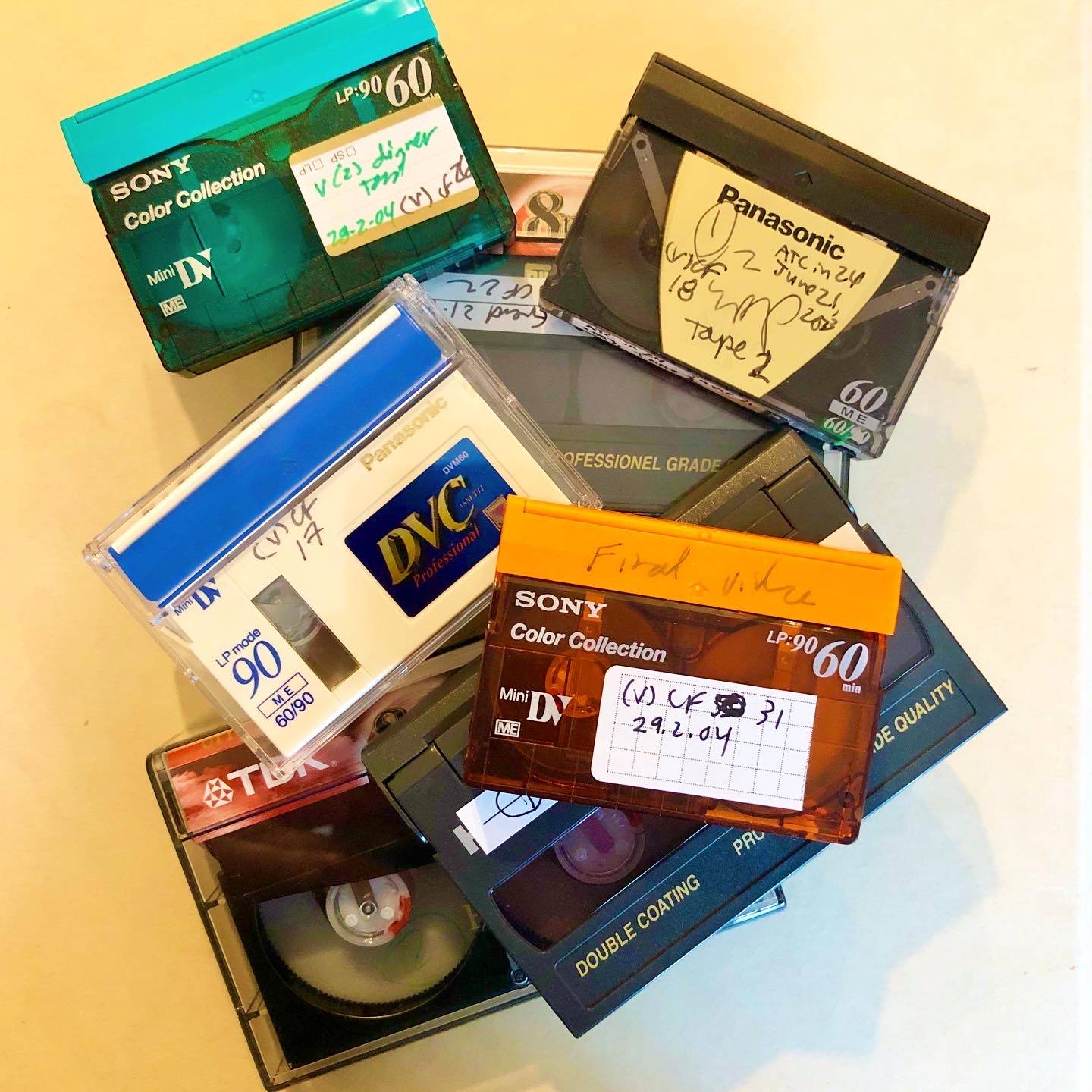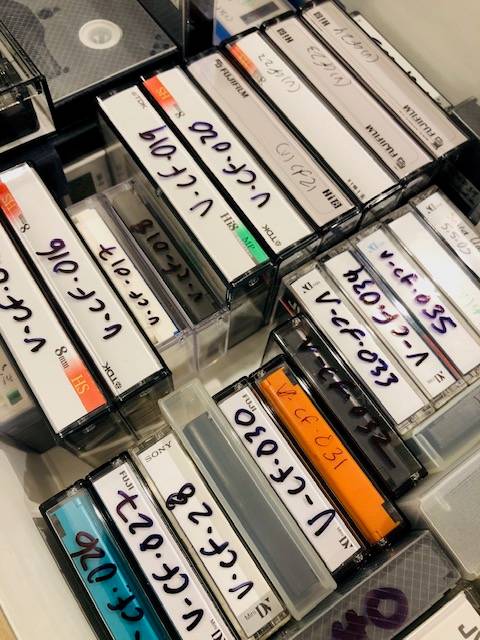Harold Bridger in his own words
Harold Bridger in his own words
A Wellcome Trust funded archival project to catalogue the records of Harold Bridger (1909-2005).
Posted
21 January 2021
In November 2020 I began a Wellcome Trust funded archival project to catalogue the records of Harold Bridger (1909-2005). Bridger is most recognised as being a psychoanalyst, a founder of the Tavistock Institute of Human Relations and an organisational consultant.
In working from home, I was introduced to the life, work and legacy of Bridger through a series of oral history recordings conducted 1996-2002, shortly before his death in 2005. The interviews offer a personal insight into Bridger’s wide ranging career, along with seamless references to his personal history, his lifelong interest in group dynamics and his relationships with many recognisable individuals and organisations.
In hearing Bridger’s recollection of his career, you see each experience being the catalyst to the next. When asked how he had made the transition from being a teacher, to being part of the Northfield Experiments, to being a psychoanalyst at the Tavistock, Bridger casually remarks ‘the one to the other is not difficult.’[1]

Harold Bridger grew up in 113 Tavistock Crescent, London (coincidence!) and completed a mathematics degree at University College London. Prior to the Second World War, Bridger was a mathematics teachers at Bablake School in Coventry. During the Second World War Bridger was selected to become a military testing officer and contribute to the emerging War Office Selection Boards. This led to his involvement in the pioneering Northfield Experiments at Hollymoor Hospital, Birmingham. The experiments aimed to use theories in group psychotherapy and therapeutic community to rehabilitate soldiers suffering from Post-Traumatic Stress Disorder.
After Northfield and after the Second World War Bridger was offered to stay in the British Army and become Chief Personnel. Despite this opportunity, Bridger decided to build upon his experiences during the Northfield Experiment and he established his place as one of the founding members of the Tavistock Institute of Human Relations. Alongside this, Bridger trained to be a psychoanalyst under analysts such as Anna Freud and Paula Heimann. In recounting this decision Bridger states: ‘The wider world of social science and Tavistock, the opportunity, you know, I couldn’t pass it up.’[2]
Whilst part of the Tavistock, Bridger embarked on a career creating and implementing sociotechnical systems and theories in more commercial and organisational settings. Bridger worked as a consultant (through the Tavistock) for companies such as Shell, Unilever and Lyons.
A key aspect to these oral history recordings is the way in which Bridger explores the relationships he formed with significant individuals, such as Wilfred Bion, Tom Main, S.H Foulkes, Lisl Klein and other prominent psychologists, psychoanalysts and thinkers. It is clear that Bridger became a valued member of emerging projects during and after the war due to the network of relationships he established with a wide range of people and organisations.

Finally, despite the ways in which Bridger came to his career choices, what is clear in the recollection of these experiences is how they are all underpinned by a natural interest and instinct for group dynamics. In a 1996 interview Bridger recounts two experiences during his adolescence that triggered an understanding of individuals and groups working in conjunction with their context. In 1927 Bridger went to visit Flanders Fields to witness the aftermath of the First World War and reflected on the impact organised warfare/destruction had on society. This profound experience was mirrored in his visit to America in the 1934 during the height of the Great Depression. He saw groups of men working on a Roosevelt conscripted project of building national parks. He saw how the organisation of this workforce had dramatically changed the prospects of thousands of young men. And he states: ‘One can see the origin of therapeutic communities here in no uncertain manner… Not that I had any visions of that kind of thing then…what was impacted on me…was always the idea of the importance of organisation, the importance of a context for other things to develop, not just the individual.’[3]
I believe this quote underpins Bridger’s work and contextualises the broad network of groups and connections he established and facilitated during his career. I believe the intrinsic links between Bridger and the Tavistock, The Tavistock and the Wellcome Library and now Harold Bridger and the Wellcome Trust, demonstrate the opportunity for continued networks in the access to Bridger’s records.
I can only hope that what I find outside of these valuable oral history recordings offers this much insight to the life, work and legacy of Harold Bridger.
Written by Annie Lord, Project Archivist, January 2021.
Sources:
[1] The Planned Environment Therapy Archive, TCVOICES, TCVOICES/370.
[2] The Planned Environment Therapy Archive, TCVOICES, TCVOICES/370.
[3] The Planned Environment Therapy Archive, TCVOICES, TCVOICES/192.
To listen to any of these oral history records please follow the link to the archive and use the references: TCVOICES/192, TCVOICES/343, and TCVOICES/370.
Available via the Planned Environment Therapy Archives and Special Collections, Mulberry Bush Third Space, Online Cataloguehttps://archives.mulberrybush.org.uk/records/TCVOICES
Project updates also available on the project Instagram:https://www.instagram.com/haroldbridgerarchiveproject/
